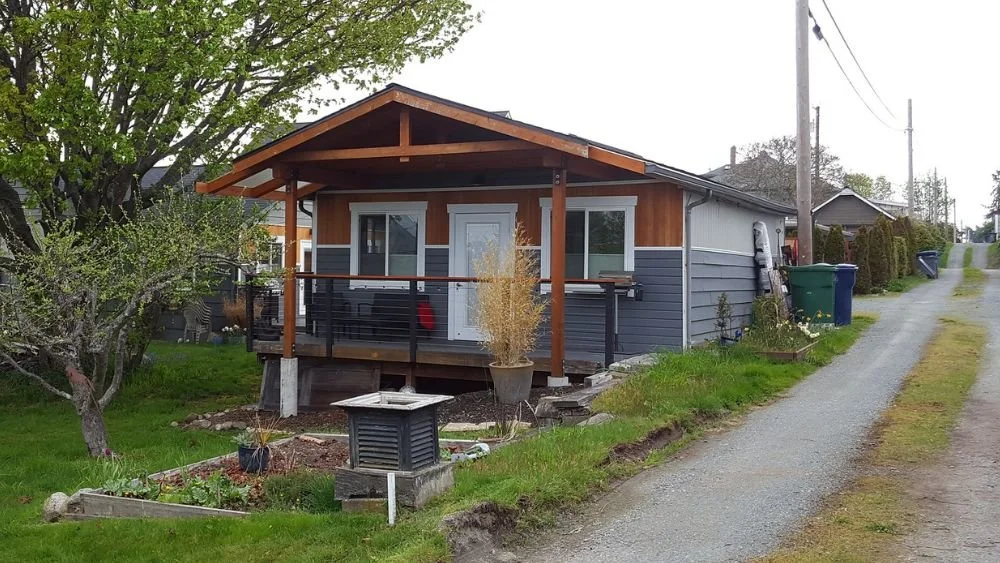What's wrong with comparing Seattle to Houston?
Nick Panzarella is a native Houstonian who's sharing a guest response to a recent Cato Institute article comparing Houston and Seattle.
Midtown, Houston, TX. (Photo by Mark Taylor Cunningham.)
The Cato Institute recently published an article claiming that cash-strapped millennials in Seattle should look instead to Houston for affordable homes. Despite making a trying attempt at comparing Houston's natural beauty to the Pacific Northwest, Randal O'Toole's argument hinges upon the notion that Urban Growth Boundaries are what make Seattle so expensive, and the lack thereof in Houston should make it a young professionals paradise. What the author misses is that the areas in central Houston where a millennial might choose to live offers homes just as expensive as Seattle.
To begin, the author of the Cato Institute article makes their biggest blunder by comparing home sizes and prices in middle-class central Seattle neighborhoods to homes in under-developed Houston neighborhoods, or homes that are in entirely separate cities in Southeast Texas. One "Houston" lake house affordably priced at $100k is on unknown Lake Tristan conveniently 2 hours from Houston, sitting closer to Texas cities like Lufkin and Beaumont. To truly compare apples to apples, homes in Seattle would have to be compared to homes in Houston neighborhoods that are actually popular with young professionals; namely Midtown, Montrose, and the Heights.
These neighborhoods offer the amenities that younger home buyers are drawn too: walkability, proximity to businesses and restaurants, and interesting architecture. And homes in these neighborhoods aren't cheap either. Houses listed in Montrose are averaging $600k, the Heights averaging $500k, and only midtown dipping into the $200ks in certain areas, according to Zillow.com. There are some areas where a $100k home might be found in central Houston, but this is only in less developed neighborhoods - a common phenomena not particular to Houston. With a growing urban population, municipal investment in mass transit infrastructure, and large-scale real estate investments not being constrained by zoning, Houston real estate is being affected by the same rising prices and the type of financial issues that are troubling high growth cities like Portland, if not on a more widespread scale.
The Cato Institute's depiction of Houston is really a comparison of suburban living to urban living, and wrongly arguing that urban growth boundaries (UGB) are preventing Seattleites from having the suburban option - a simple search on Zillow.com reveals plenty of homes under $200k within 30 minutes of Seattle. If there's any government-imposed rule that's inflating real estate prices, it's not UGB, but parking requirements. The City of Houston arbitrarily assigns required parking space amounts for all homes, apartments, and businesses outside of the Central Business District. This effectively requires all business owners to purchase or lease twice the amount of space needed to house their business - whether or not the parking spots get used. (Join Strong Towns for its annual Black Friday Parking event if you want to learn more.)
American urban cores are growing almost everywhere - even in the utterly suburban sunbelt - and prices are increasing along with that growth. We should move past using such cities like Houston as strawmen to prop up foolish arguments against building strong towns. We're not going to solve the affordability crisis if we don't even know where it's happening.
(Top image by Horatio Maria)
Related stories
About the author
Nick Panzarella is a native Houstonian determined to see smart growth and vibrant urbanism take hold in Texan cities. Nick freelance writes about urbanism, sustainability, and food, while running Houston based Panzarella Import Co. which sells culturally important botanicals as a means to promote and preserve local and indigenous cultures.




Outdated zoning laws are holding cities back, restricting housing options and stalling economic growth. That’s why Cincinnati is trying something different.